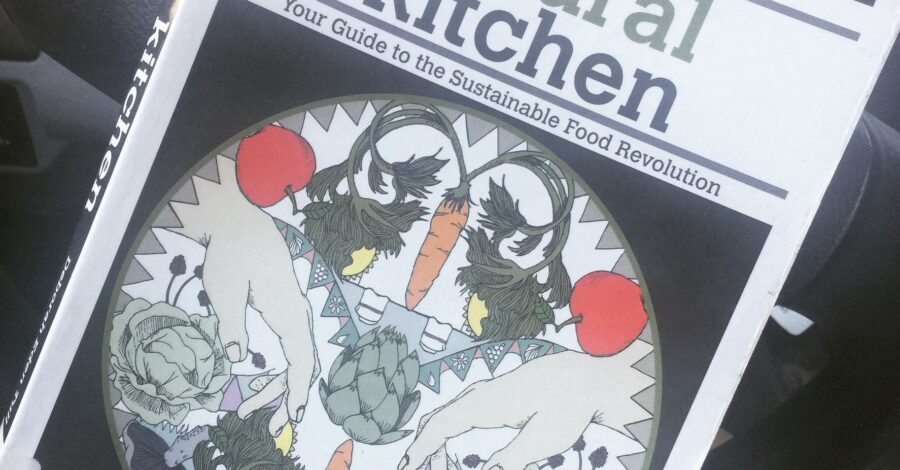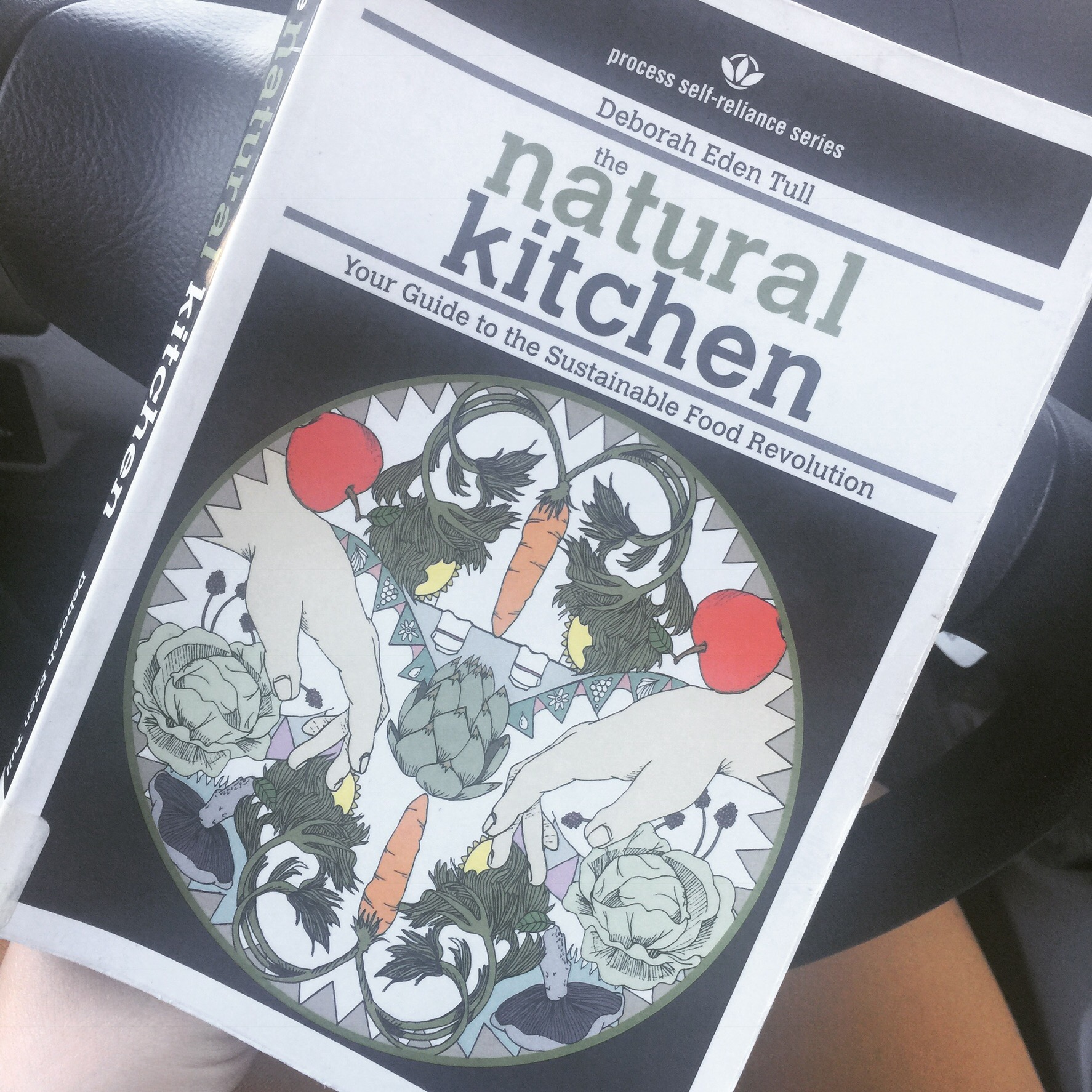I was running through the library on my lunch break recently, in a hurry to find a few supplementary books for school. As I went down an aisle, this book was propped up on the shelf. After just a quick glance at the cover, I grabbed it and added it to my stack.
And I’m glad I did! The Natural Kitchen by Deborah Eden Tull is one of the best books on sustainable living that I’ve read in quite awhile. Tull currently lives in LA and works as a sustainability coach, drawing from years of living and working in intentional communities, with monks, and on organic, sustainability-run small farms (and I learned that organic doesn’t necessarily = sustainable!).
The Natural Kitchen is so full of ideas and resources that by the time I was halfway through, I added the book to my Amazon wishlist so I could purchase a copy of my own. You’ll definitely come back and reference this book a lot! Tull offers suggestions for sustainable alternatives for everything in your kitchen, from where to purchase your food, how to store it, the most efficient methods to cook from scratch, lots of recipes, gardening, composting, and even sustainable materials for kitchen remodels. I love that her ideas are affordable and realistic to implement – this isn’t a book that’s going to tell you to destroy your budget by shopping exclusively at Whole Foods or require that you spend a lot of time learning specialized skills. Tull truly understands that most people are stretched thin with so many commitments between work, school, and family, and takes this into consideration with all of her recommendations.
What I love the most about The Natural Kitchen is Tull’s conversational and non-judgmental tone. The book is a quick, easy read with cute illustrations that feels more like a conversation with a friend. Tull realizes that people’s desire and ability to commit to sustainability can be incredibly varied, and she supports whatever level of green living that readers can realistically achieve. I think this aspect of the book is so important because readers won’t feel that they’re being judged or that Tull doesn’t understand that not everyone can or wants to drop all of their responsibilities to live a completely sustainable lifestyle. Extremism on either side of a cause will end up hurting it and I really love that Tull strikes an understanding balance.
This book is short – around 250 pages – but is a pleasure to read and offers a wealth of information that you’ll reference for a long time to come!






Leave a Comment